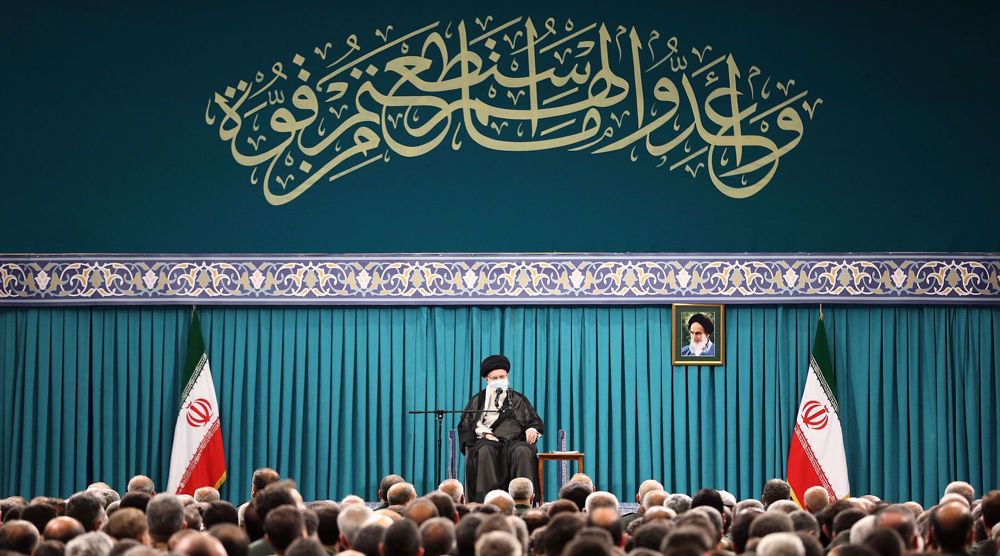Alwaght- Leader of the Islamic Republic of Iran Ayatollah Sayyed Ali Khamenei warned of enemies’ attempts to tarnish the image of Iran’s Islamic Revolution Guards Corps (IRGC) and Basij volunteer forces.
"One of the main parts of the enemy’s activities is to tarnish the image of the IRGC and that of Basij [volunteer forces]. Why is that? Because the IRGC is awe-inspiring, Basij is impressive, which makes them (enemies) worried and anxious," the Leader stated.
The Leader made the remarks in a meeting with the Supreme Assembly of Commanders of the IRGC in Tehran on Thursday.
The last meeting between Ayatollah Khamenei and senior IRGC commanders was held some four years ago with the presence of Lieutenant General Qassem Soleimani, Iran’s top anti-terror general who was assassinated by the United States a few months after the meeting.
Enemies have no avenue to tarnish the reputation of the IRGC other than through "false news, rumors and all kinds of tricks and ploys,” the Leader added, praising the IRGC elite force as “the world’s biggest anti-terrorism organization."
“It is a well-equipped military organization. It is an efficient and independent organization capable of carrying out tasks that many of the world's major militaries cannot accomplish,” Ayatollah Khamenei added.
Ayatollah Khamenei further expounded on how the IRGC stood apart from other forces that emerged in the early stages of big revolutions such as the French Revolution and the Bolshevik Revolution in Russia.
Those forces often exhibited destructive tendencies, disorderliness, and a lack of discipline, whereas the IRGC was structured “under the central authority” of the Islamic Revolution from the beginning, the Leader pointed out.
Ayatollah Khamenei pointed to a summit of senior officials from the US, UK, France, and Germany on the French island of Guadeloupe just before the victory of the 1979 Islamic Revolution, adding that at that point they had concluded it was “impossible” to save the US-backed Pahlavi regime in Iran.
Nevertheless, they adopted a strategy of “sequential crises,” in the hope of destabilizing any new government in Iran, the Leader said, recounting the series of crises, riots, security threats, and extensive acts of terrorism that marked the early phase of the Islamic Revolution.
Ayatollah Khamenei highlighted that evidence obtained from the former US embassy in Iran, known as the "Den of Espionage," also revealed that these incidents aligned with the West's deliberate strategy of instigating consecutive crises within Iran.
The Leader commended the IRGC for its exceptional efforts, noting that the elite force effectively thwarted all those crises, safeguarding the Iranian people from their repercussions.
Ayatollah Khamenei elaborated on the enemies' plot to undermine the Islamic Revolution by orchestrating ongoing crises and ultimately dismantling it through a maneuver akin to the 1953 Iranian coup d'état, referred to in Iran as the 28 Mordad coup.
However, the IRGC successfully countered the coup scheme in Iran and this achievement is the root cause of the enemies' grudge against the elite force, the Leader noted.



























